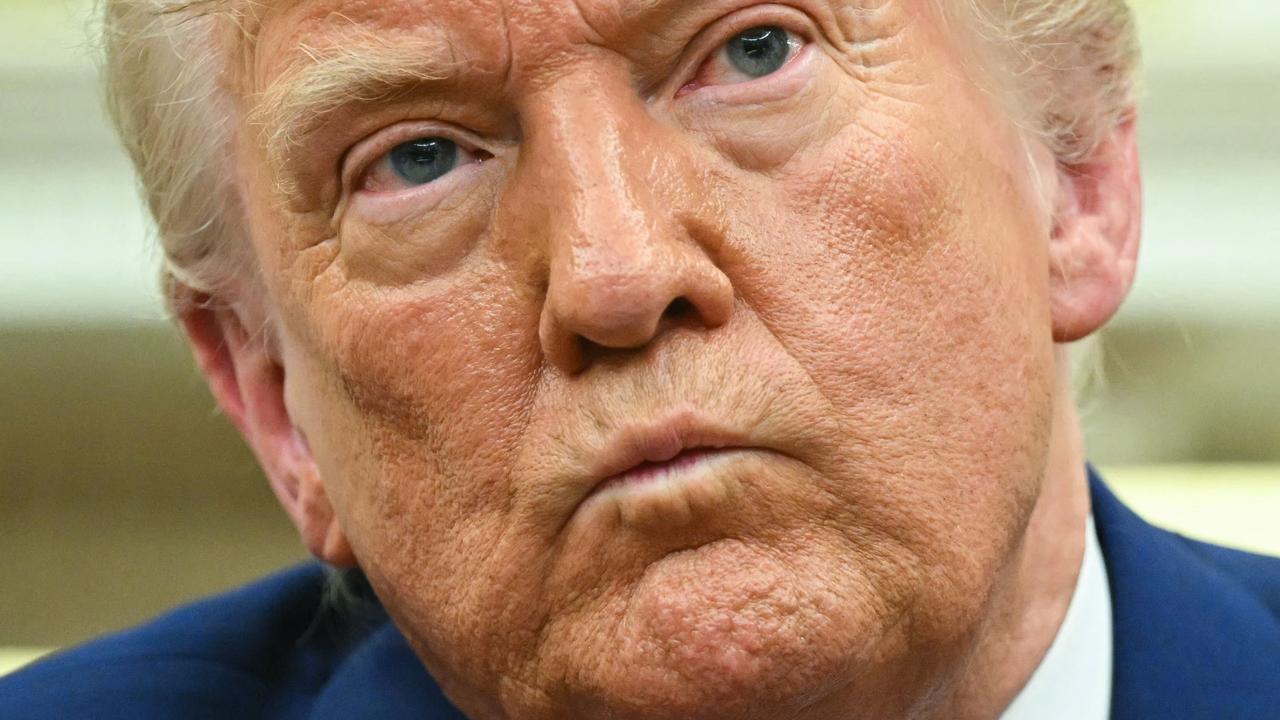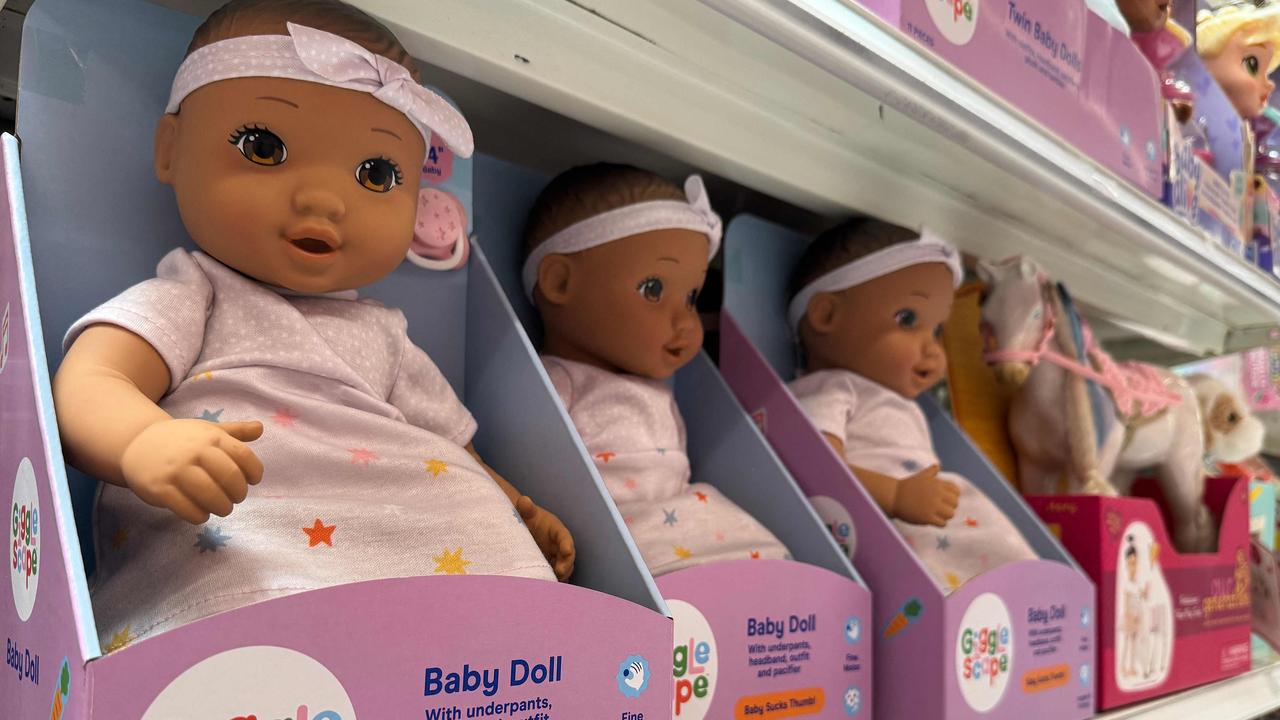‘Homegrowns are next’: Ominous new warning from Trump suggests he’ll try to deport US citizens
Donald Trump has foreshadowed a potentially huge escalation in his deportation plans, sure to end in a heated legal fight.
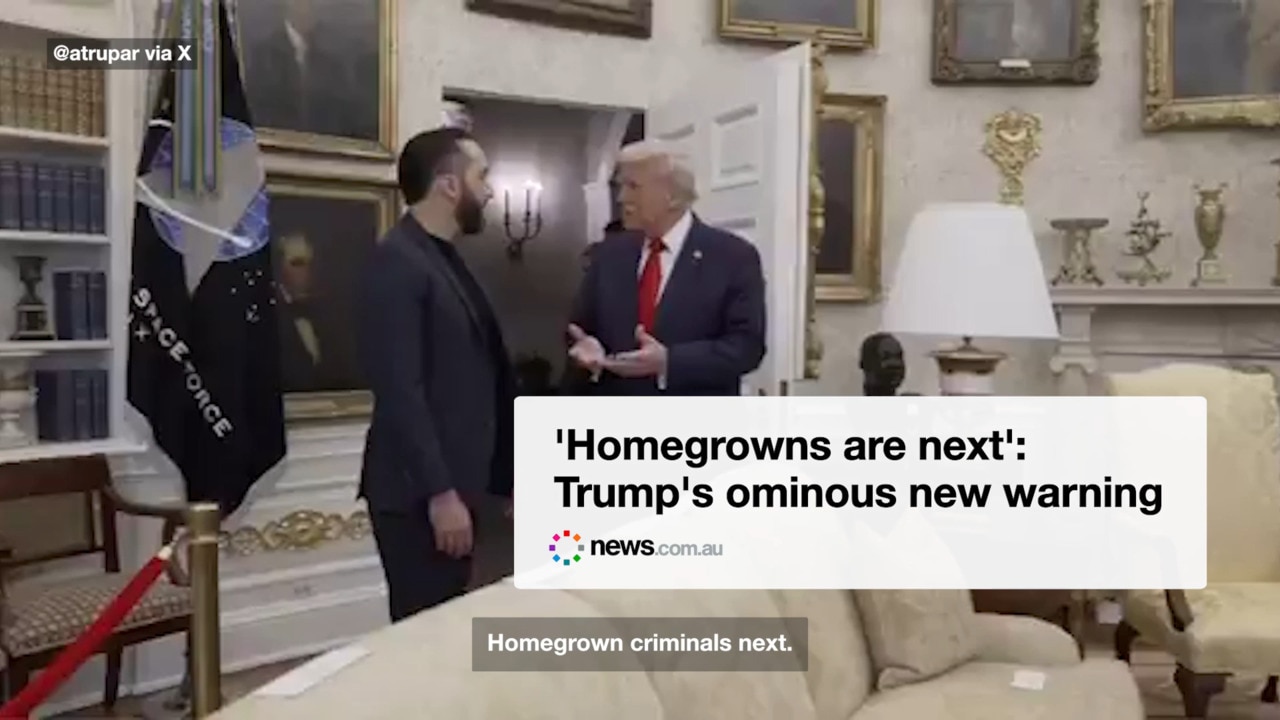
Donald Trump has indicated he is willing to deport US citizens to jails overseas, in another escalation of policies whose legality are already being hotly contested.
Thus far the Trump administration has limited itself to deporting migrants. Most controversially, it has paid the Central American country El Salvador to imprison deportees in its notorious Cecot jail, otherwise known as the Terrorism Confinement Centre.
A growing number of those who were deported, and now languish in the megaprison, appear to be people who were in the United States legally and had no criminal record. Mr Trump and his officials have characterised them as gang members, violent criminals and, to quote the President himself, “the worst of the worst”.
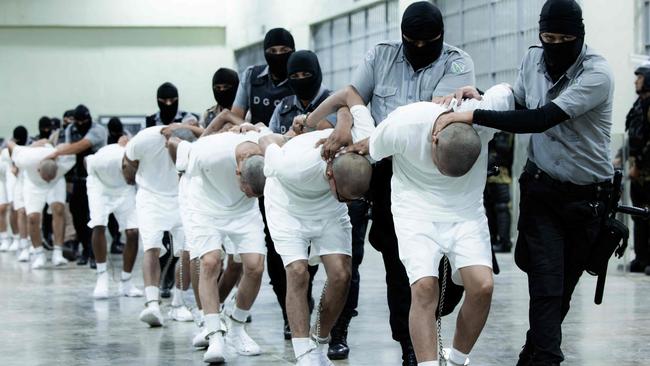
The process by which they were deported is also under scrutiny. Mr Trump invoked a law from 1798, the Alien Enemies Act, to class them as “alien enemies”, allowing him to remove them from the United States without any due process, i.e. without any chance to defend themselves or contest the government’s characterisation of them in court.
The legality of Mr Trump’s strategy is still being litigated. The law in question, which was designed to be used on the nationals of countries with which the US is at war, has only been invoked three times before, during the War of 1812, World War I and World War II.
Mr Trump’s argument is that the activities of foreign gangs in the United States constitute an invasion, and therefore the law is applicable.
The point is, legal drama is already swirling. Should Mr Trump attempt to deport US citizens, it will escalate even further.
Today he hosted El Salvador’s President, Nayib Bukele, at the White House. Mr Bukele is himself a controversial figure, having suspended a swath of civil rights in his country as part of a crackdown on gangs, which has successfully lowered violent crime.
He has described himself, jokingly, as “the coolest dictator in the world”, though observers remain concerned there’s truth behind it. He has, for example, bent El Salvador’s judiciary to his will by replacing judges throughout the court system with loyalists, which is a classic authoritarian move.
Wherever you might land on all that, he gets on well with the Trump administration.
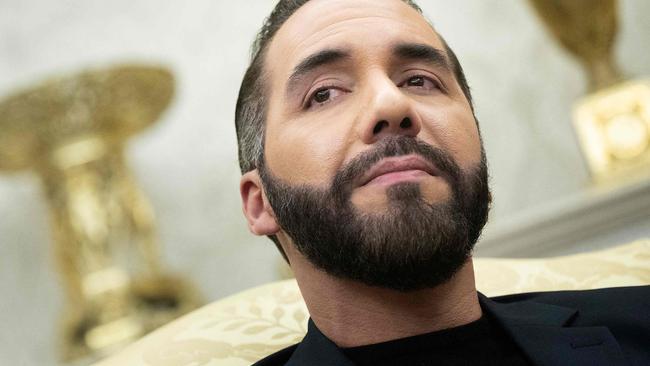
‘Homegrowns are next’
Interest in the possibility of US citizens being deported was piqued by footage, inside the Oval Office, from a Salvadoran media livestream.
“Homegrown criminals are next,” Mr Trump muttered to Mr Bukele, before turning to the room and announcing it more loudly.
“I said homegrowns are next! The homegrowns. You’ve got to build about five more places. It’s not big enough.”
That last part, aimed at Mr Bukele, was a suggestion that he’d need more prisons to house all the deportees from America.
Afterwards, in front of American cameras as well, the two leaders sat down for a question-and-answer session before their formal bilateral meeting.
“You mentioned that you’re open to deporting individuals who are not foreign aliens, foreign criminals, to El Salvador? Does that include, potentially, US citizens?” one reporter asked.
“If they’re criminals, and they hit people with baseball bats over the head that happen to be 90 years old. If they rape 87-year-old women in Coney Island. Yeah, that includes them,” Mr Trump answered.
“What, you think they are a special category of person? They’re as bad as anybody that comes in.
“We always have to obey the laws, but we also have homegrown criminals that push people into subways, that hit elderly ladies on the back of the head with a baseball bat when they’re not looking, that are absolute monsters,” he added.
“I’d like to include them in the group of people, to get them out of the country, but you’ll have to be looking at the laws on that.”
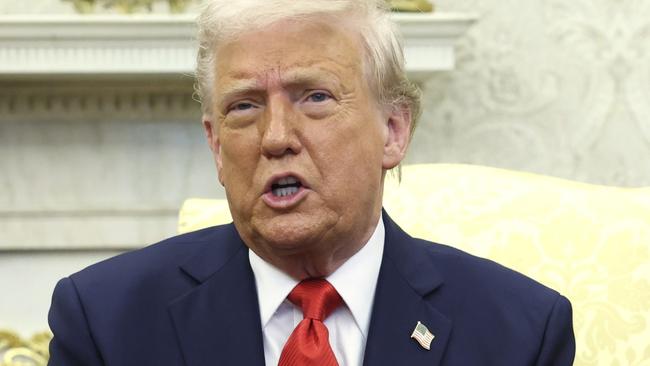
He said Attorney-General Pam Bondi, who was present in the room, “is studying the law”.
The law appears to be quite clear. American citizens who were born in the United States cannot be deported, full stop. Naturalised citizens, i.e. those who were born elsewhere but have gone through the legal process to become citizens, are also protected unless their citizenship is stripped, which can happen if they obtained it fraudulently.
This issue came up in a very recent Supreme Court ruling (more on that shortly), specifically in the written opinion of progressive Justice Ketanji Brown Jackson.
“The implication of the government’s position is that not only non-citizens, but also United States citizens could be taken off the streets,” she wrote.
“Forced onto planes, and confined to foreign prisons with no opportunity for redress if judicial review is denied unlawfully before removal.”
Spotlight on case of wrongfully deported man
Mr Trump was asked repeatedly about the case of Kilmar Abrego Garcia, a Salvadoran with a US citizen wife and child, plus two stepchildren, whom the government has admitted, in court, was wrongfully deported.
However, because Mr Garcia is now in El Salvador’s custody, the Trump administration claims it has no power to return him to the US. And for whatever reason, it seems unwilling to request that Mr Bukele facilitate that return.
Here’s the background on the case, before we launch into today’s remarks in the Oval Office.
Mr Garcia entered the United States illegally in the early 2010s. According to his lawyers, he was fleeing from gang violence in his home country.
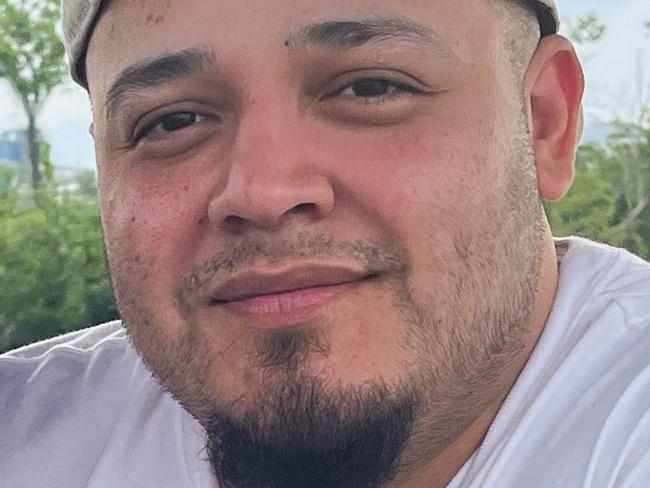
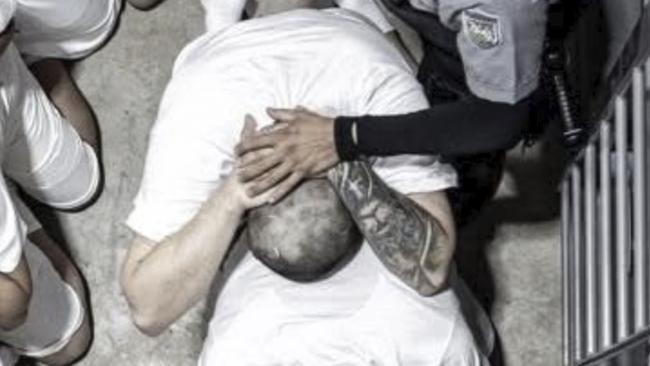
In 2019, he was arrested alongside two other men. The local police department had identified him as a gang member because he was wearing a Chicago Bulls hat and vaguely matched the description of a suspect. In addition to that, an informant had claimed Mr Garcia was part of the gang MS-13. He denied it.
The arrest went nowhere, and afterwards an immigration judge granted Mr Garcia protective status – making him a legal, rather than illegal, resident of the US. The judge’s ruling stated that, even though Mr Garcia was eligible to be deported due to entering the country illegally, he could not be sent back to El Salvador because it would put him in danger.
So that was his history before he was detained and deported to the Cecot megaprison. He has never been convicted of a crime, and the allegation in 2019 that he was a member of MS-13 was ultimately too flimsy to pursue.
Nevertheless the Trump administration is now calling him a member of the gang as though it were proven. Vice President J.D. Vance has been perhaps been the most strident, labelling Mr Garcia “a convicted MS-13 gang member with no legal right to be here”.
Last week the US Supreme Court, which is split 6-3 between conservatives and progressives (Mr Trump himself appointed three of the justices), unanimously upheld a lower court ruling ordering the government to facilitate Mr Garcia’s return to the US.
“The United States acknowledges that Abrego Garcia was subject to a withholding
order forbidding his removal to El Salvador, and that the removal to El Salvador was therefore illegal,” the nation’s highest court noted (“the United States”, here, meaning the government).
“The United States represents that the removal to El Salvador was the result of an ‘administrative error’.
“The order properly requires the government to ‘facilitate’ Abrego Garcia’s release from custody in El Salvador and to ensure that his case is handled as it would have been had
he not been improperly sent to El Salvador.”
The Supreme Court did urge the lower court to “clarify its directive, with due regard for the deference owed to the Executive Branch in the conduct of foreign affairs”. You can read the full ruling here, it’s quite brief.
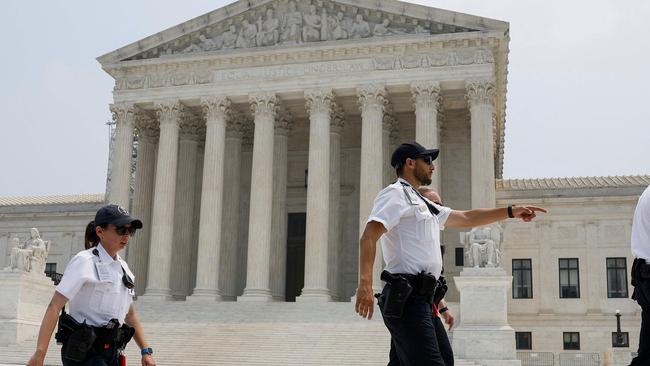
But the Trump administration continues to resist. It is now arguing, in the District Court, that the judiciary cannot compel it to facilitate Mr Garcia’s return via anything other than domestic measures.
“The federal courts have no authority to direct the Executive Branch to conduct foreign relations,” the government’s lawyers are arguing. The idea being that no American court can compel the government to ask El Salvador to help it retrieve the man in question.
So again, for whatever reason, the government just does not want to put any pressure on El Salvador to help it comply with the Supreme Court’s ruling.
Trump bristles at question about defying courts
Sorry, a lot of words there, but the full context is important. Back to the Oval Office.
“You said, if the Supreme Court said someone needed to be returned, you would abide by that,” a reporter told Mr Trump.
“Why don’t you just say, ‘Isn’t it wonderful that we’re keeping criminals out of our country?’ Why do you go over and over? That’s why nobody watches you. You have no credibility,” the President responded.
For what it’s worth, the reporter was correct. Here is Mr Trump’s quote to the press pack travelling with him on Air Force One on Friday: “If the Supreme Court said, ‘Bring somebody back,’ I would do that. I respect the Supreme Court.”
“Can President Bukele weigh in on this? Do you plan to return Garcia?” the same reporter (who was from CNN, if you care) asked.
“I hope you’re not suggesting that I’ll smuggle a terrorist into the United States,” the President of El Salvador replied.
“How could I return him to the United States? I smuggle him? Of course, I’m not going to do it. The question is preposterous. I don’t have the power to return him to the United States.”
“These are sick people,” Mr Trump added, pointing at the press pack.
Sooooooooo we are left with the United States saying it does not have the power to get Mr Garcia back, because he is now under Salvadoran jurisdiction. And at the same time we have the Salvadoran leader saying he doesn’t have the power to return Mr Garcia, because that would amount to “smuggling him”.
I shall leave the last word to Secretary of State Marco Rubio, who responded to all of this by saying: “I don’t understand what the confusion is.”
Originally published as ‘Homegrowns are next’: Ominous new warning from Trump suggests he’ll try to deport US citizens


